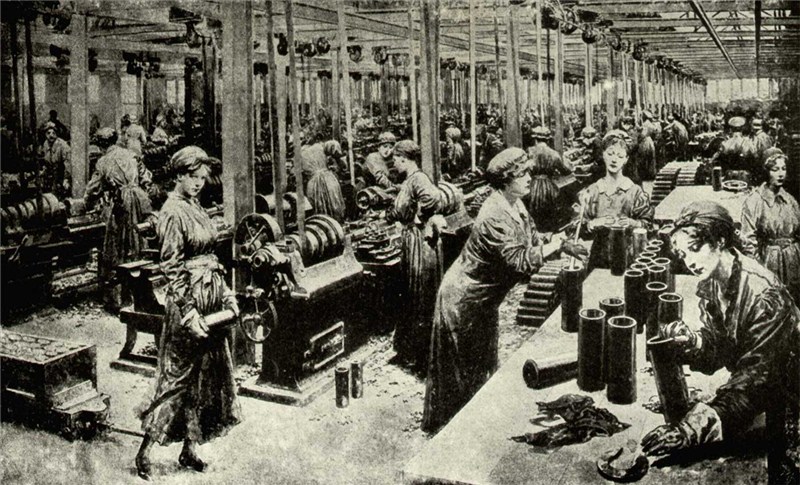 WWI served as a catalyst for women writers to voice their observations and opinions on the war. Kate Kestien, author of When Our Men Lay in the Trenches, 1935, wrote about the hardships that women had to endure while the men were battling it out in the trenches.
WWI served as a catalyst for women writers to voice their observations and opinions on the war. Kate Kestien, author of When Our Men Lay in the Trenches, 1935, wrote about the hardships that women had to endure while the men were battling it out in the trenches.In the excerpt from A Night in a German Munition Factory, Kestien describes the dangerous working conditions that the factory workers had to endure. She sets the scene in this piece by explaining how women had to work during the night shift, in order to be able to tend to their families during the day. They worked long strenuous hours in an unsafe environment, breathing in ether throughout their shift.
The effects of ether gave some a "paralysing weariness" that interfered with their vision. It was these sleep deprived women, loopy from the ether, that had to operate razor sharp equipment that needed to be maneuvered precisely. Kestien writes of the fast pass that they were forced to work at. The author told of an incident in which a woman's left hand got severed while operating a cutting machine. This women couldn't afford not to work because her husband, lying in the hospital, was recovering from his own wounds he received in battle. Having four children at home she did not want to leave her post in the factory, until she realized the survevaty of her wound. After receiving medical care this women appeared relieved that it was her left hand so she could still function with her dominate hand."It was at night that weariness crept into the limbs, especially around midnight, before the big break, when the air in the room had become dense and sticky.
Because of this injury, the armed guards were not pleased that the machines had to be shut down, they ordered the women to resume working as the injured women was being carried off to the hospital.



